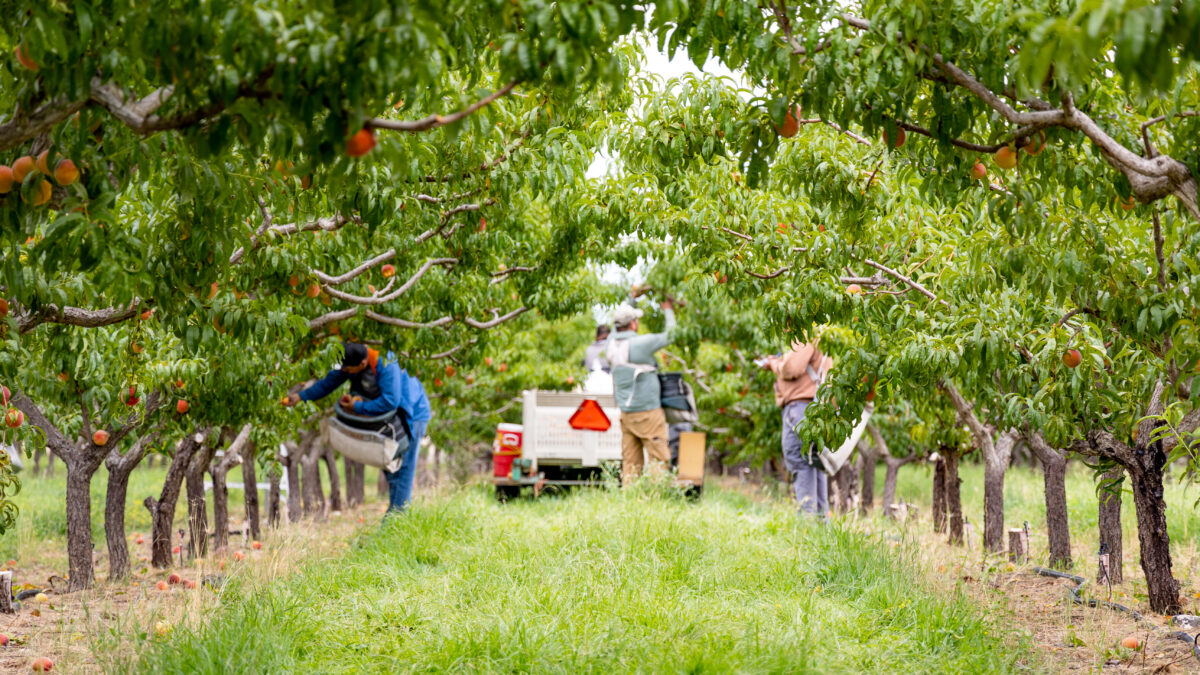Labor Shortages Continue to Impact Farmers
Guest Author
Special Contributor to FB.org

photo credit: Luke Munchrath, Used with Permission
Guest Author
Special Contributor to FB.org
By Justin Ferguson
Take a moment to think back to April 2020. The U.S. was one month into the COVID-19 pandemic, and consumers across the country were panic buying all the necessities they could get their hands on. This fear stemmed from the thought there would not be enough food and people would go hungry.
The lack of products on grocery store shelves was not because farmers stopped growing crops and raising livestock to provide a food source for the country. It was because every step of the supply chain lacked the labor needed to keep up with the demand.
COVID-19 social distancing restrictions and the spread of the virus to workers meant farmers had trouble finding people to help them harvest crops and as a result, processing facilities across the country were shut down. Travel lockdowns in other countries preventing workers from coming to the U.S. did not help the labor shortage, either.
Farmers and ranchers struggle to find people willing to harvest and process the food that feeds the world.
The topic of labor in the agriculture industry and supply chain is nothing new. It just became abundantly apparent to those outside the industry during the pandemic.
Farmers and ranchers struggle to find people willing to harvest and process the food that feeds the world every year. With the dwindling rural population and growing opportunities away from the farm, many farmers throughout the U.S. have turned to bringing in labor from other countries through the H-2A temporary agricultural program.
The H-2A program allows farmers who meet specific regulatory requirements to bring non-immigrant workers to the U.S. to fill seasonal or temporary agricultural jobs when American labor is unavailable. A misconception about the program is that non-immigrant workers are illegal aliens and H-2A permits can lead to U.S. citizenship. The reality is that agricultural workers who enter the U.S. under the H-2A program are temporary, and the program does not lead to a permanent residence or U.S. citizenship.
To obtain H-2A visas, interested agricultural workers must submit an application. Then, after advertising for American labor, the farmer must also file an application, completing a tedious and costly process to bring foreign workers to their farms.
Agricultural labor has become one of the most pressing policy issues for the industry. Farmers and processing facilities have enough problems to face without having to worry about labor. That is why Farm Bureau is working with Congress to make sure sound immigration policy is enacted that will stop the flow of illegal immigration, while protecting the ability of U.S. farmers to recruit needed legal, temporary workers.
Having an obtainable and consistent labor force is vital to keeping farms producing at the highest levels, providing food and fiber, not only for U.S. consumers, but also for the rest of the world. That is why the question always comes back to this – would you rather import your food or your labor?
Justin Ferguson is federal affairs coordinator at the Mississippi Farm Bureau Federation. This column was originally published by MSFB and is republished with permission.
Top Issues
VIEW ALL